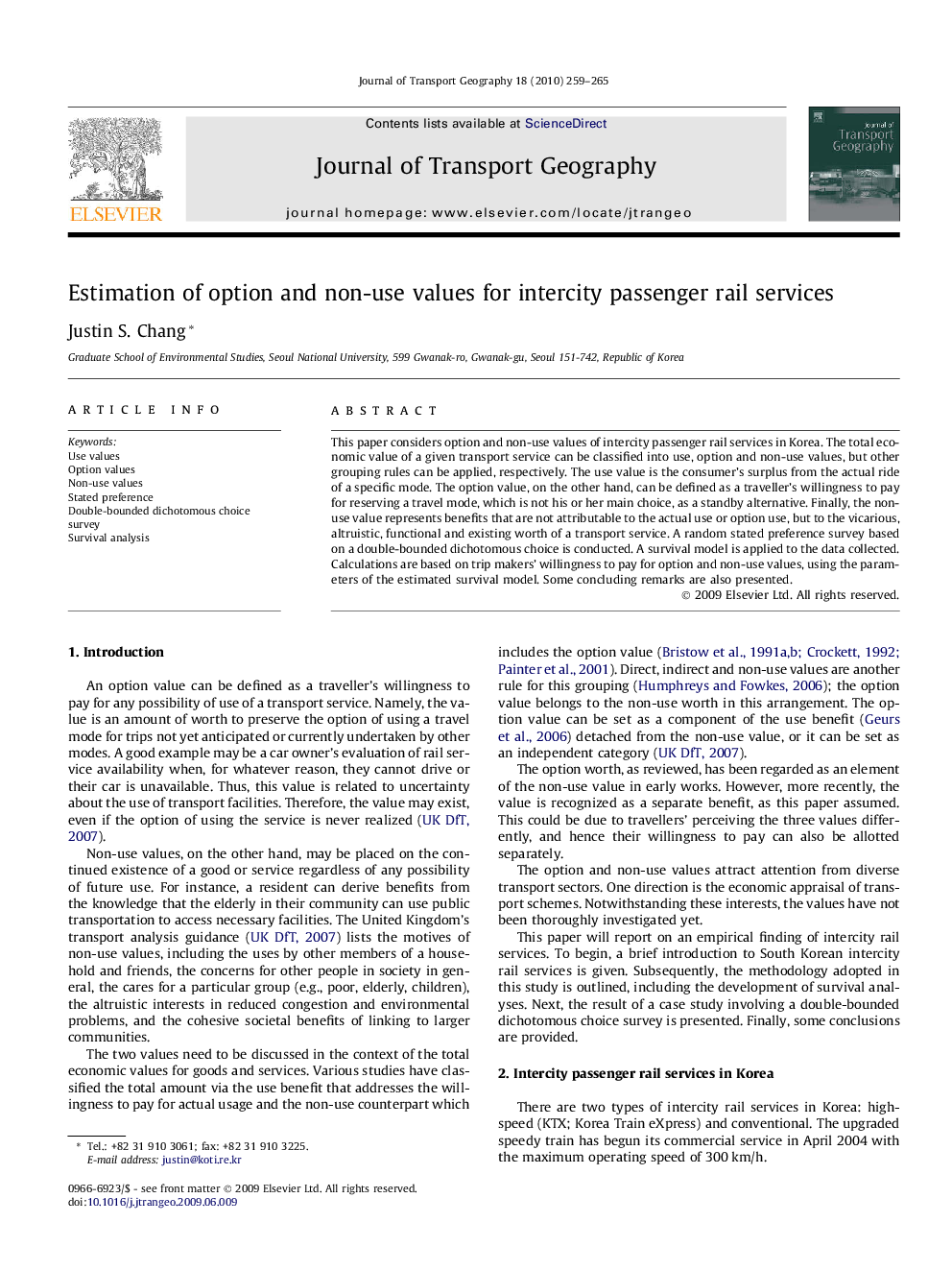| Article ID | Journal | Published Year | Pages | File Type |
|---|---|---|---|---|
| 1059831 | Journal of Transport Geography | 2010 | 7 Pages |
This paper considers option and non-use values of intercity passenger rail services in Korea. The total economic value of a given transport service can be classified into use, option and non-use values, but other grouping rules can be applied, respectively. The use value is the consumer’s surplus from the actual ride of a specific mode. The option value, on the other hand, can be defined as a traveller’s willingness to pay for reserving a travel mode, which is not his or her main choice, as a standby alternative. Finally, the non-use value represents benefits that are not attributable to the actual use or option use, but to the vicarious, altruistic, functional and existing worth of a transport service. A random stated preference survey based on a double-bounded dichotomous choice is conducted. A survival model is applied to the data collected. Calculations are based on trip makers’ willingness to pay for option and non-use values, using the parameters of the estimated survival model. Some concluding remarks are also presented.
